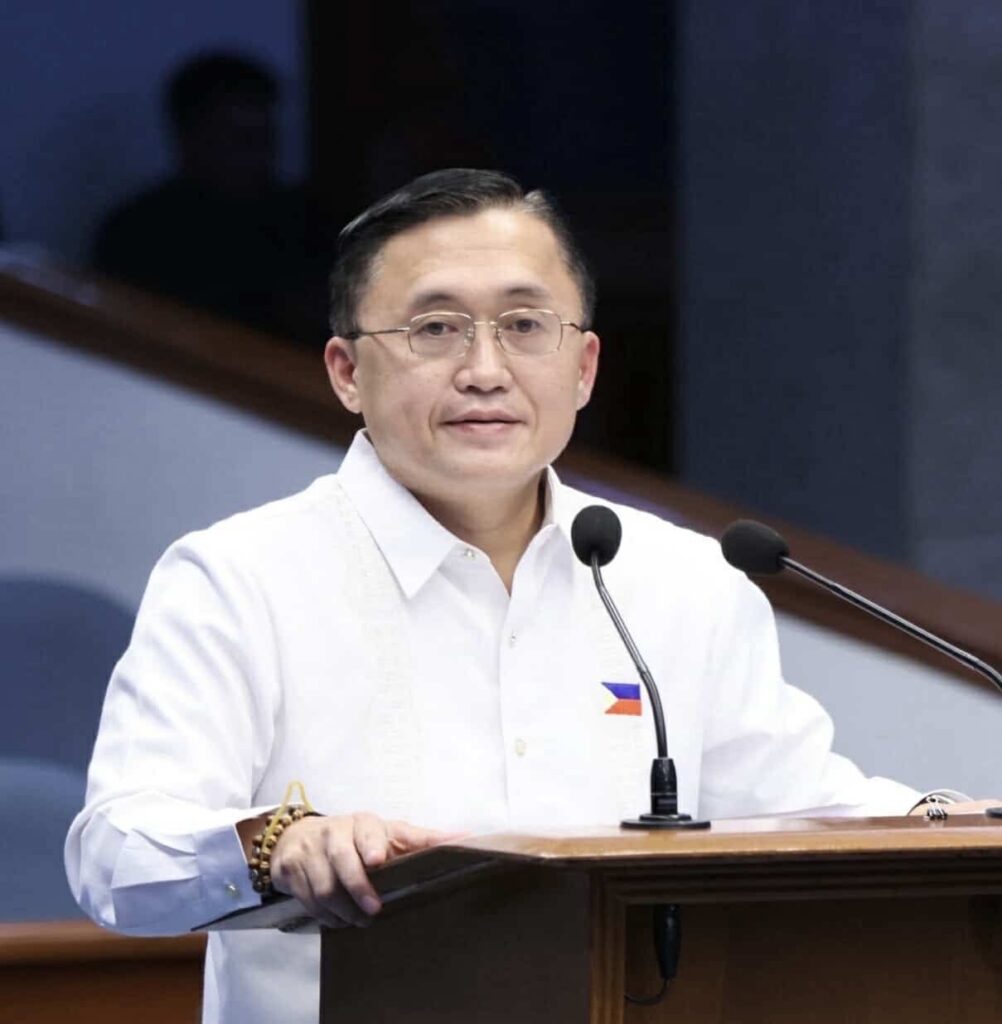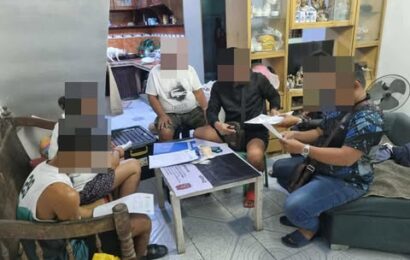Senator Christopher “Bong” Go, Chairperson of the Senate Committee on Health and a staunch health reforms crusader, has reiterated his serious concerns over the proposed 2025 national budget, particularly the decision to allocate zero subsidy to the Philippine Health Insurance Corporation (PhilHealth).

With this, Senator Go questioned how the government can effectively uphold its commitment to universal healthcare under such circumstances and challenged PhilHealth to lay down plans on how they can fulfill its commitments of expanding benefits by utilizing its available resources.
“Our people demand answers: How can PhilHealth efficiently implement its commitments for better healthcare benefits if no funds were allocated? Will our relentless and consistent efforts in our committee hearings to effect PhilHealth policy reforms be compromised by this?” he asked.
Go shared that the Senate Health Committee shall hold its continuous monthly hearings on the state of the Philippine healthcare system and is scheduled to meet on December 18 to inquire about the plans of PhilHealth and the Department of Health moving forward.
While Senator Go acknowledged lapses in the agency’s utilization of its reserves, he underscored that completely withdrawing government subsidy was unjustifiable.
“I believe that it does not give justice to deprive PhilHealth of the government’s subsidy entirely, as it is the poor, the hopeless, and the oppressed Filipinos who will suffer ultimately,” he emphasized, noting the potential consequences of the decision.
“More importantly, funding intended for health must be used and allocated for health! I am saddened that the funding intended for PhilHealth has been diverted for other purposes,” he lamented.
He warned that the move could derail the progress made in implementing the UHC Law, a critical piece of legislation aimed at guaranteeing affordable and accessible healthcare for all Filipinos.
“Let us be reminded that under the UHC Law, Filipinos should be ensured that healthcare expenses are kept to a minimum. Unfortunately, we are still far from achieving this goal, and it may become even more difficult with the zero-subsidy allocation for next year,” he stressed.
Go’s appeals for expanded benefits are rooted in concerns over the agency’s management of its existing resources, which include a significant reserve fund of PHP 500 billion as well as PHP 89.9 billion excess funds that was planned to be transferred to the treasury to be used for other purposes if not for the recent Supreme Court Temporary Restraining Order which Go lauded.
“Marami pa pong natutulog na pondo sa PhilHealth habang maraming Pilipino ang naghihingalo dahil sa mga hindi kayang bayaran na hospital bills. Dapat magamit ito sa paraang makakabenepisyo ang taumbayan,” Go stated.
Go also raised that while the SC TRO halted the transfer of excess Philhealth Funds to the national treasury, the move of Congress to defund PhilHealth next year leads to questions as to where the intended funds for health will be allocated.
“Tinutulan nga natin ang pagtransfer ng excess funds sa national treasury, pero ang pagdefund sa PhilHealth sa susunod na taon ay mistulang paraan rin lang para magamit ang pondo para sa kalusugan sa ibang paggagamitan. I also find this morally unacceptable,” he said.
While supportive of provisions to allocate sufficient budget for other priorities, he expressed disappointment on why the budget for health was compromised.
“Hindi ko alam saan napunta ang PHP 74 billion na dapat sana para sa PhilHealth o para sa health,” he lamented. “Kung may tinanggal na budget sa PhilHealth dahil kulang ang benepisyo na binibigay nito, dapat sa health programs ilagay pa din. Dapat hindi po sa iba.”
Also, Go highlighted that Republic Act 11223 or the Universal Health Care (UHC) Law mandates that the amount necessary to implement the provisions of the UHC shall be included in the GAA, explaining: “ ito po yung nakolekta noong 2023, dapat po’y nakalaan ito para sa 2025, and shall be appropriated under the DOH and National Government subsidy to PhilHealth.”
“May pinanggalingan na po iyan tulad ng sin tax collections na dapat ay para sa implementation ng UHC, nasa batas po iyan. May earmarking po iyan under RA 11346 at RA 11467 or the Sin Tax Laws,” he added.
There is also a provision in the UHC Act that premium subsidy from indirect contributors shall be included annually in the General Appropriations Act.
Although Go has strongly criticized the decision to withhold funding for PhilHealth, he still urged the state health insurer to deliver on its commitments to expand health benefits for Filipinos by utilizing its available funds properly.
“Naiintindihan ko po ang galit at pagkadismaya,” Senator Go stated. “Ngunit hindi dapat maging hadlang ito para hindi magawa ng Philhealth ang trabaho niya.”
“Kung ginamit po sana nang tama ang pondo, hindi tayo aabot sa puntong ito. Ang dapat gawin ng PhilHealth ay siguruhin na ang pondo ay talagang napapakinabangan ng taumbayan,” he said.
The past months, Go kept on urging PhilHealth to expand its benefit packages especially for top 10 mortality diseases, increase case rates, scrap its restrictive policies like the 24-hour confinement policy, cover additional services like dental, optometric services and assistive device, among others.
Earlier, Go addressed various controversial policies that hinder access to healthcare, including the “single period of confinement” policy, which prevented patients from claiming benefits if hospitalized for the same condition within three months. Last October, this policy was scrapped by PhilHealth.
Go also criticized the “24-hour confinement rule,” which requires patients to stay hospitalized for a full day to qualify for insurance coverage. PhilHealth officials have since committed to reviewing this rule as part of their ongoing policy revisions.





